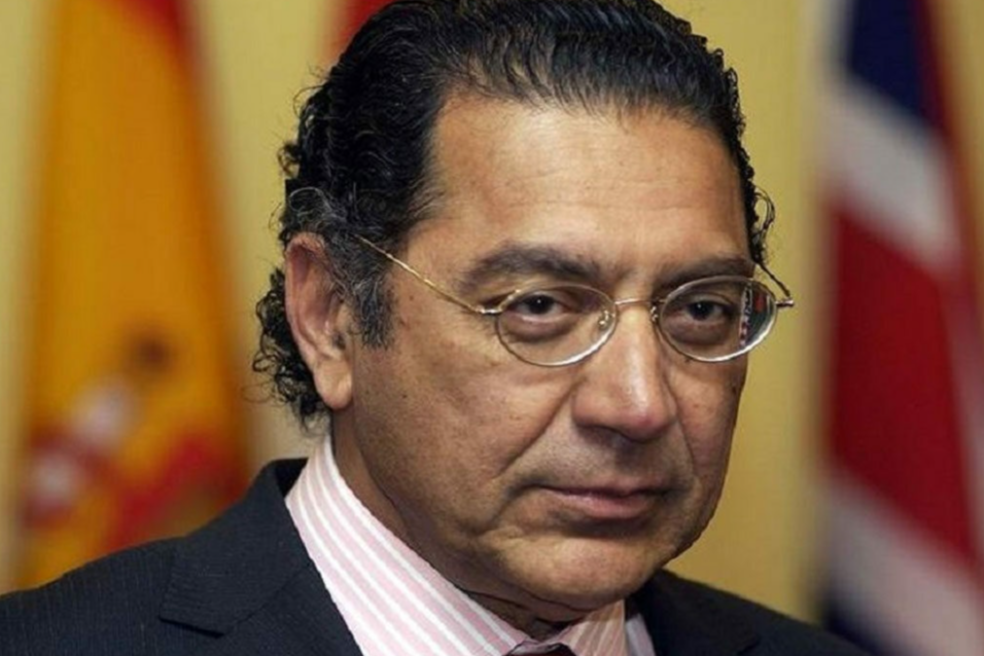Former PM likens Israel's 'humanitarian city' plan for Gaza to 'concentration camp'

Israeli Defense Minister Israel Katz's proposal to build a "humanitarian city" has elicited criticisms domestically and internationally, with former Israeli prime minister Ehud Olmert likening the plan to a "concentration camp" in an interview with British media.
Last week, Katz had ordered the military to plan for the construction of a "humanitarian city" on the ruins of southern Gaza, to initially house 600,000 Palestinians, even as negotiators were trying to reach a ceasefire deal the whole week.
"It is a concentration camp. I am sorry," Olmert told The Guardian newspaper.
If the Palestinians "will be deported into the new 'humanitarian city', then you can say that this is part of an ethnic cleansing. It hasn't yet happened," Olmert said.
"When they build a camp where they (plan to) 'clean' more than half of Gaza, then the inevitable understanding of the strategy of this (is that) it is not to save (Palestinians). It is to deport them, to push them, and to throw them away. There is no other understanding that I have, at least," he added.
Al Jazeera reported on July 13 that demolition operations being conducted by Israel in Gaza's southern Rafah Governorate have increased sharply.
An analysis of satellite imagery up to July 4 showed the number of demolished buildings in Rafah rising to about 28,600, up from 15,800 on April 4, according to data from the United Nations Satellite Centre.
The Times of Israel reported that during a security cabinet meeting on July 13, Israeli military leaders had warned government ministers that the ambitious project could take three to five months to implement and imperil ongoing hostage negotiations.
The meeting was convened at Israeli Prime Minister Benjamin Netanyahu's request, with the Israel Defense Forces (IDF) supposedly slated to present an outline for the "humanitarian city" in Rafah.
On the X social media platform, Israeli opposition leader and former prime minister Yair Lapid criticized the plans as a bad idea from every possible perspective, saying it is an attempt to create a process that will ultimately leave Israel stuck in Gaza with "no choice".
Posting an image of a Hebrew-language news headline that the plan could cost Israel 15 billion shekels ($4.5 billion), Lapid criticized Israeli Finance Minister Bezalel Smotrich for wanting to waste money instead of possibly lowering taxes or reducing the cost of public transportation for Israelis.
Israel claims that moving Palestinians from the north of Gaza to Rafah, in the south, is a "humanitarian plan for establishing a humanitarian zone".
Iyad Eid, an assistant professor at the Department of Sociology and Anthropology at the International Islamic University Malaysia, told China Daily, "The true motive, however, is creating a new prison or a Nazi(-style) ghetto for Palestinians, breaking all humanitarian international laws."
"The Israeli forces are currently gaining military control over Rafah, pushing hungry Palestinians out of the city and then executing a further crime of ethnic cleansing," he said.
"The new plan represents a real crime against humanity as it systematically carries out genocide against Palestinian civilians every day, weaponizes hunger in warfare, and ultimately confines them in the Rafah region before exiling them from their land," he added.
Elsewhere in the West Bank, Israeli forces on July 14 also seized an under-construction residential building in the town of Turmus Ayya, northeast of Ramallah, turning it into a military outpost and raising the Israeli flag atop the structure.
Israeli forces also continued striking Gaza a day after killing 95 Palestinians across the enclave, which included seven children waiting for water and 17 people at a busy market in Gaza City.
The United Nations Children's Fund said on July 13 that over 5,800 children in the Gaza Strip were diagnosed with malnutrition during June, as the devastating Israeli war and blockade continue to severely restrict access to food and essential services.
Netanyahu said last week Israel was ready to enter into a permanent ceasefire in Gaza during a 60-day truce, but only if the Palestinian territory was demilitarized.
On July 13, Palestinian militant groups Hamas and Palestinian Islamic Jihad (PIJ) said that ongoing indirect negotiations with Israel must lead to an end to the war, full Israeli withdrawal from Gaza, the opening of the crossings, and reconstruction, Xinhua News Agency reported.
The remarks came during a meeting between the leaders of the two movements, the location of which was not specified, according to a statement released by Hamas.
The Hamas delegation was headed by Muhammad Darwish, head of the Hamas Shura Council, while Secretary-General Ziyad al-Nakhalah headed the PIJ delegation.
"The two factions discussed developments in the ongoing negotiations through international mediators and the Israeli side's responses to the proposals presented to reach a ceasefire agreement," the statement said.
United States President Donald Trump announced on July 13 that stalled talks for a ceasefire and hostage deal in Gaza could see a breakthrough "within a week".
jan@chinadailyapac.com





























